| Coach | NA |
| Venue | Iwagin Stadium |
Grulla Morioka predictions
Predictions for Grulla Morioka: See upcoming and historic predictions for Grulla Morioka below.
Disclaimer: Past performance does not guarantee future results. Betting involves risk; only wager what you can afford to lose. Always gamble responsibly.
Grulla Morioka latest results
J2 League standings
| Rank | Team | MP | W | D | L | GF | GA | GD | Pts |
|---|---|---|---|---|---|---|---|---|---|
| 1 |
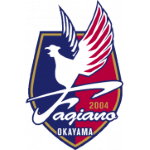 Fagiano Okayama
Fagiano Okayama
|
7 | 5 | 2 | 0 | 9 | 2 | 7 | 17 |
| 2 |
 Shimizu S-pulse
Shimizu S-pulse
|
7 | 5 | 0 | 2 | 11 | 8 | 3 | 15 |
| 3 |
 Vegalta Sendai
Vegalta Sendai
|
7 | 3 | 4 | 0 | 6 | 3 | 3 | 13 |
| 4 |
 V-varen Nagasaki
V-varen Nagasaki
|
7 | 3 | 3 | 1 | 10 | 6 | 4 | 12 |
| 5 |
 Yokohama FC
Yokohama FC
|
7 | 3 | 2 | 2 | 9 | 4 | 5 | 11 |
| 6 |
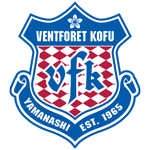 Ventforet Kofu
Ventforet Kofu
|
7 | 3 | 2 | 2 | 11 | 8 | 3 | 11 |
| 7 |
 Renofa Yamaguchi
Renofa Yamaguchi
|
7 | 3 | 2 | 2 | 8 | 5 | 3 | 11 |
| 8 |
 Ehime FC
Ehime FC
|
7 | 3 | 1 | 3 | 9 | 8 | 1 | 10 |
| 9 |
 Montedio Yamagata
Montedio Yamagata
|
7 | 3 | 1 | 3 | 8 | 7 | 1 | 10 |
| 10 |
 Blaublitz Akita
Blaublitz Akita
|
7 | 3 | 1 | 3 | 6 | 5 | 1 | 10 |
| 11 |
 Tochigi SC
Tochigi SC
|
7 | 3 | 1 | 3 | 7 | 12 | -5 | 10 |
| 12 |
 Iwaki
Iwaki
|
7 | 2 | 3 | 2 | 11 | 5 | 6 | 9 |
| 13 |
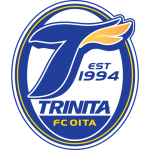 Oita Trinita
Oita Trinita
|
7 | 2 | 3 | 2 | 6 | 5 | 1 | 9 |
| 14 |
 Kagoshima United
Kagoshima United
|
7 | 2 | 2 | 3 | 8 | 14 | -6 | 8 |
| 15 |
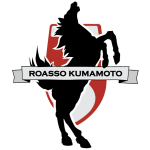 Roasso Kumamoto
Roasso Kumamoto
|
7 | 2 | 2 | 3 | 7 | 13 | -6 | 8 |
| 16 |
 JEF United Chiba
JEF United Chiba
|
7 | 2 | 1 | 4 | 12 | 12 | 0 | 7 |
| 17 |
 Fujieda MYFC
Fujieda MYFC
|
7 | 2 | 1 | 4 | 3 | 10 | -7 | 7 |
| 18 |
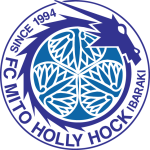 Mito Hollyhock
Mito Hollyhock
|
7 | 1 | 2 | 4 | 3 | 6 | -3 | 5 |
| 19 |
 Thespakusatsu Gunma
Thespakusatsu Gunma
|
7 | 1 | 2 | 4 | 5 | 9 | -4 | 5 |
| 20 |
 Tokushima Vortis
Tokushima Vortis
|
7 | 1 | 1 | 5 | 6 | 13 | -7 | 4 |
About Grulla Morioka
Grulla Morioka is a professional football club based in Morioka, Iwate, Japan. The club was established in 2004 as a community-based team, with the aim of promoting football culture in the region and fostering local talent. The name "Grulla" comes from the Spanish word for crane, a bird that is a symbol of Iwate Prefecture.
Grulla Morioka's journey in the football world began in the Tohoku Soccer League, where they quickly established themselves as a dominant force. Their consistent performances led to their promotion to the Japan Football League (JFL) in 2013. This was a significant achievement for the club, as it was the first time a team from Iwate Prefecture had reached the national leagues.
In 2014, Grulla Morioka made another leap forward by joining the newly formed J3 League, the third tier of the Japan Professional Football League (J.League). This marked the beginning of a new chapter in the club's history, as they aimed to compete at a higher level and further develop football in Iwate Prefecture.
Grulla Morioka's home ground is the Iwagin Stadium, a multi-purpose stadium with a capacity of 30,000. The club's colors are green and white, representing the beautiful natural landscapes of Iwate Prefecture. The team's emblem features a stylized crane, reinforcing the connection to their home region.
Over the years, Grulla Morioka has built a reputation for their commitment to local development. The club has a strong focus on youth development, with several players from their youth academy going on to play for the first team. They also actively engage with the local community through various initiatives, including football clinics and charity events.
Despite facing challenges and fierce competition, Grulla Morioka continues to strive towards their goal of reaching the J1 League, the top tier of professional football in Japan. The club's journey is a testament to their dedication, resilience, and passion for football, making them a source of pride for the people of Iwate Prefecture.
















